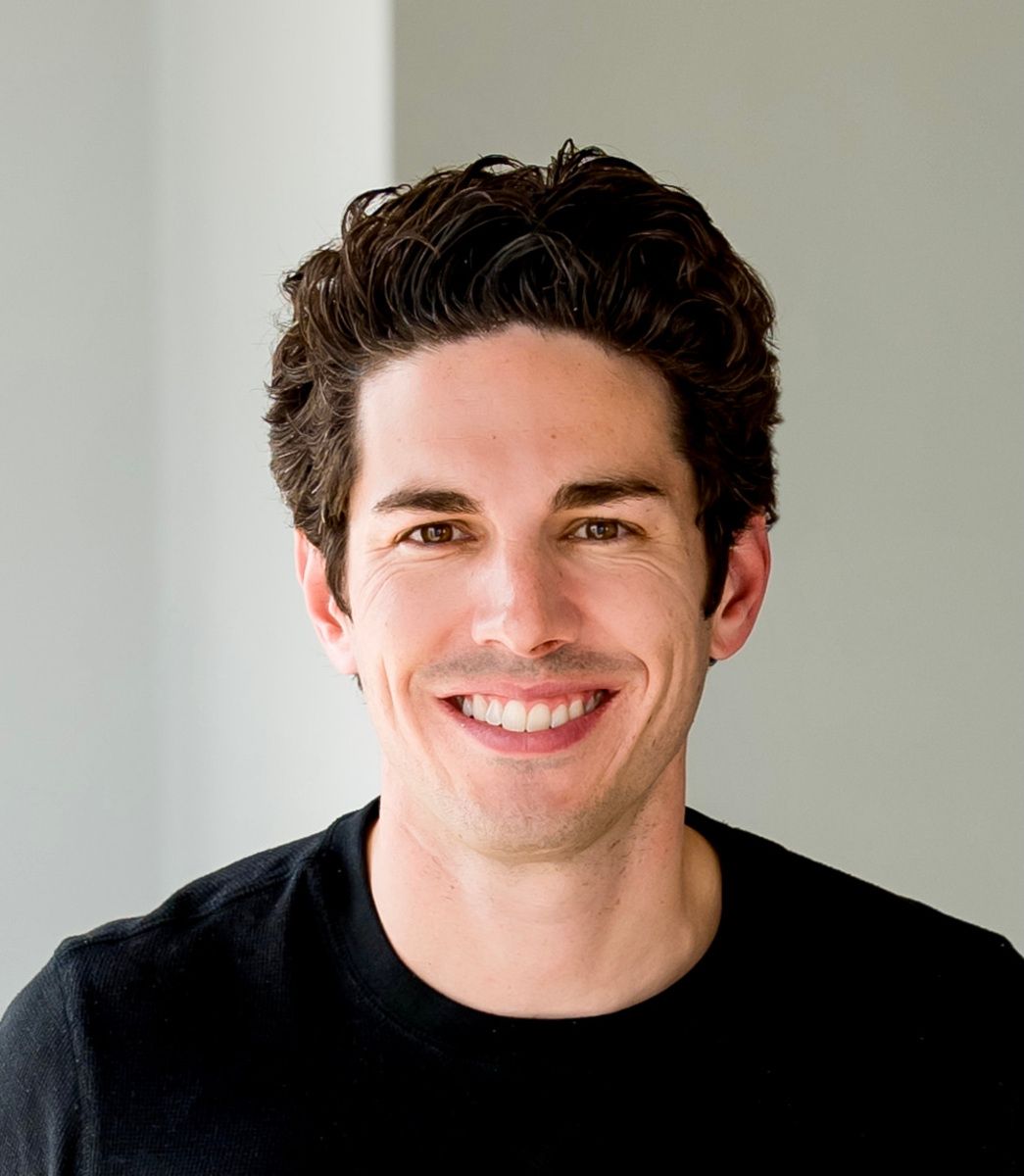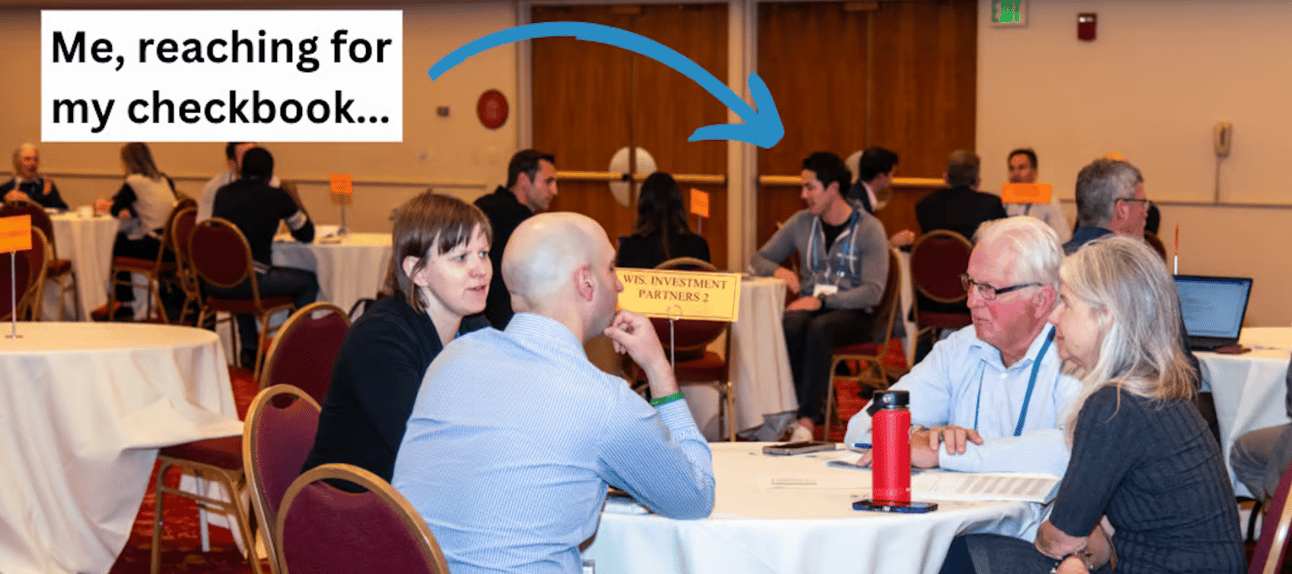If you’re new to this newsletter, click here to access the rest of my newsletter articles such as the “Why We Passed on this Startup” series, reflections on investing, and tactics on winning in the market. Now, onto today’s post!

Once upon a time, I met a startup team.
I met with the founders, Tracy and Carl. They had already raised several million dollars for their company, Company Z.
We had an in-person meeting. I was aware that the company had ground breaking technology. Going in to the conversation, I was excited about this opportunity.
I was ready to have a conversation to decipher the highly technical with the big picture.
But the in-person meeting didn’t go the way that I expected.
During the conversation, I asked the founders to give me an overview of first the problem, then the solution.
I continued to get confused by the problem they were solving and the solution they were bringing to market.
I asked many questions - a lot of it re-stating to make sure I understood what we just covered. But instead of getting resolution around clarity, for everything I restated to clarify, Carl and Tracy layered several more layers of complexity onto it.
Because of this, I wasn’t achieving a level of breakthrough clarity on the business that I hoped I would.
I left the meeting and said that I wanted to follow up with them to learn more. Truth be told though, I was way more confused than I entered the meeting with.
But I wanted to schedule a follow up call because I thought that the team just needed more time. “We’ll get there,” I thought.
Is It Just Me?
Sometimes when we are doing due diligence on a company, the question becomes, “Do other investors see it the same way? Are they understanding this when I am not? Am I just not thinking about it correctly?”
Thankfully, I got into into this.
I found out about a context where Carl and Tracy were pitching the company virtually. I expressed my interest to the organizer and the organizer invited me to the call. I was a fly on the wall, a passive listener, taking in data points.
I listened to portions of Tracy’s pitch. It still seemed like she was speaking at an academic level.
Just as it was happening to me during our in-person meeting.
Then, I listened to some of the investor Q&A. The questions some investors asked were logical and pertinent, but Carl’s answers only furthered the confusion.
Just as it was happening to me during our in-person meeting.
That was a signal - I’m not the only one who is being confused by this.
After the founders left the call, the organizer had previously asked one of the company’s investors to join the call to share their thoughts on the company and opportunity.
I know this investor well. They have a great sense of details of particular domains and yet are generalist enough that they can level up the conversation to the “So What?”
In many ways, this investor was answering the group’s highly technical questions in layman's terms.
This was notable - this investor was doing exactly what the founders should have been doing.
The founders, through my conversation and this one too, had not been able to level up the conversation to the big picture, the, “So what?”
For subject matter expert investors that literally know the domain of the startup intimately well, this may not matter as much.
But for generalist investors that invest in many industries, like Tundra Angels, the “So what?” is not apparent until the founding team makes it explicit.
Now, I totally understand that a scientist/founders, they live in the technical world. They have the insane mental capabilities to focus on arcane minute details of ideas, concepts, as you often need to when you are developing a breakthrough technology.
But this same way of thinking creates a natural disadvantage to moments like these two conversations above. For some, stretching beyond technical science to the big picture is very hard. Some people are just not wired that way.
Now, my question was, the founders weren’t doing this now, but could they?
The Pattern I Expected… But Didn’t Get
For context, there have been a number of highly scientific plays that Tundra Angels has invested in and they all followed a similar pattern.
In each of those opportunities, I had an experience that felt like discovering a proverbial diamond in the rough.
The diamond that I refer to is this “a ha” moment of discovery and clarity where I understand “Oh, so THAT is what you’re doing… well let’s frame it like this instead…” And from that moment on, the founder and I crossed a threshold into how they think about their business.
Those moments tend to be a very illuminating moment for the founding team so much so that if Tundra Angels invests and then as the months and years pass, the founders continue to point to that moment as a milestone moment for their business in terms of how to frame up the opportunity.
The fact that these founders that we had invested in reached a point of mental clarity like this was a confirmation of the quality of the team. It showed that they were mentally adroit enough to stretch beyond the technical to communicate the big picture - one of the key pieces of fundraising.
But, I hadn’t yet reached that with Carl and Tracy. Were they capable of breaking through the technical to the big picture? Or not?
I reasoned that I likely haven’t spent enough time with the founders yet.
But, over the weeks, I kept on pushing through these conversations one after another… anticipating that breakthrough of mutual clarity to happen.
But it never did.
Every conversation left me more confused than the one before. It’s as if I was in a doom loop of complexity. Instead of Carl and Tracy subtracting the complexity, they kept on adding to it.
After enough conversations with them, my perspective shifted from “It might be me,” to a, “It must be you.”
That diamond in the rough moment was still the same. The rough kept on covering up the diamond.
And I started to lose confidence that the founder could even see the diamond of big picture clarity at all.
It Shouldn’t Be That Hard
I see this behavior in a pretty binary way.
For an investor, “It shouldn’t be that hard.”
One of the #1 jobs of a tech startup CEO is to raise investor funds. In any fundraise, a founder encounters so many different types and knowledge bases of investors. Broadly speaking, there are generalist investors and subject matter expert investors (see article that I wrote about that here). Much of the founding teams’ job in fundraising is adapting the message and vision to the appropriate level of the investor audience.
Without this ability to calibrate the message to the audience on the fly, I start to lose confidence in this founder’s ability to fundraise.
That’s what started to emerge with Carl and Tracy. As the conversations went on, it became clear to me that they were not able to adapt the message to the audience.
Because in tech startups, it’s just as much about the next round as it is this round.
I feared, If we’re having trouble getting through on this round, hte next round will be even harder.
A Pass I Was OK With
My communication with Carl and Tracy ended up dying out. They communicated via email that they had secured a lead investor for their round and implied that they were passing on me.
I wasn’t phased. It was OK.
That was going to be my answer too.
I didn’t get the allure of the company. Apparently some did. That’s what makes venture capital such an interesting and dynamic world.
But I saw something - the team’s inability to re-frame the technical intricacies to a layman’s terms level is a struggle that those investors would have to deal with.
Good luck. I didn’t have any… and I sure as heck tried a long and hard time to get it.
Closing Thoughts
Contrast this experience above with an existing Tundra Angels portfolio company, Immuto Scientific, where the co-founders are Faraz Choudhury and Daniel Benjamin. A highly technical play in the drug discovery space where the two co-founders are PhDs out of University of Wisconsin-Madison. They have developed a technology that enables companies that were previously undruggable and put on the shelf to be druggable via the inventive step of their technology.
Tundra Angels first invested in Immuto in 2021.
Earlier in 2025, Immuto Scientific recently raised $8M earlier and announced that they signed two big contracts with pharmaceutical companies.
I recently caught up with a Partner at a VC fund that invested in Immuto’s round. For reference, this investor has a heavy allocation of their portfolio in BioTech, so suffice to say, they have seen many, many scientist-founders.
“Faraz is a stud,” said this investor.
“His ability to get highly technical with subject matter experts and then get on stage and drop the mic with a compelling pitch that is easy to understand is one of the things that makes him special. Plus, he’s got incredible execution.”
“He’s good. I mean, really good.”
So here is my question to you - put your investor hat on. Which founding team would you rather bet on?
Here’s the key - the question is not, which company is capable of raising money?
In nearly every situation, we’d look to bet on the founding team that is mentally flexible enough to be able to speak to the arnate details with the subject matter experts, yet still captivate the vision of the generalists.
Click here to access the rest of the newsletter articles.
Here are some of the recent ones!





